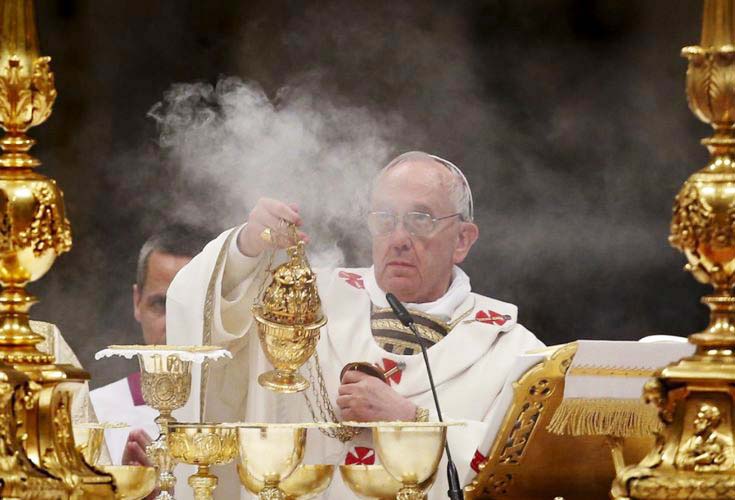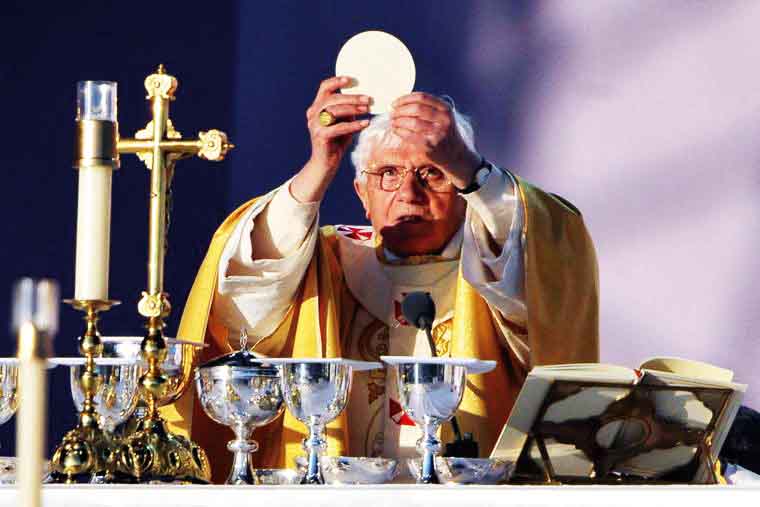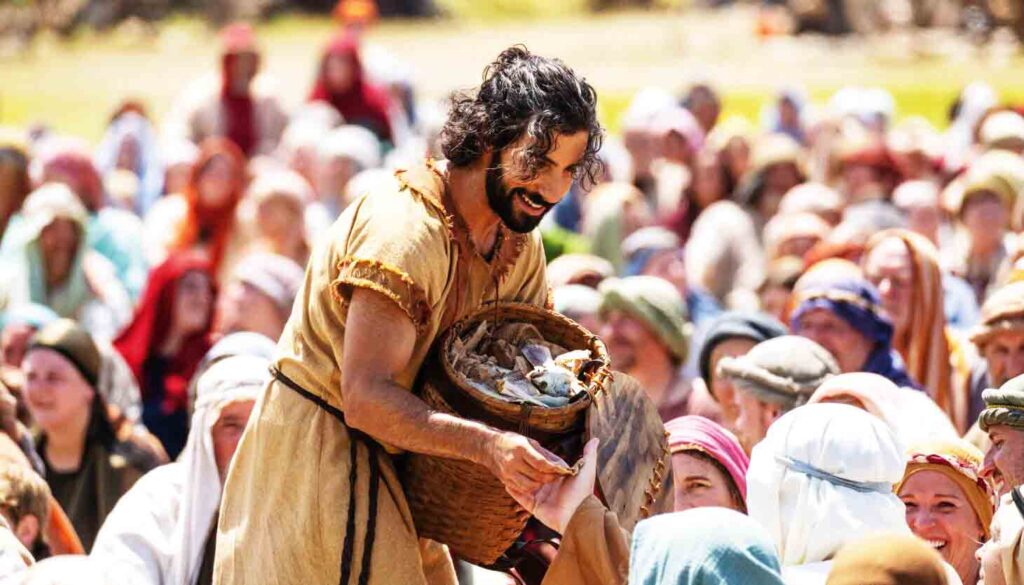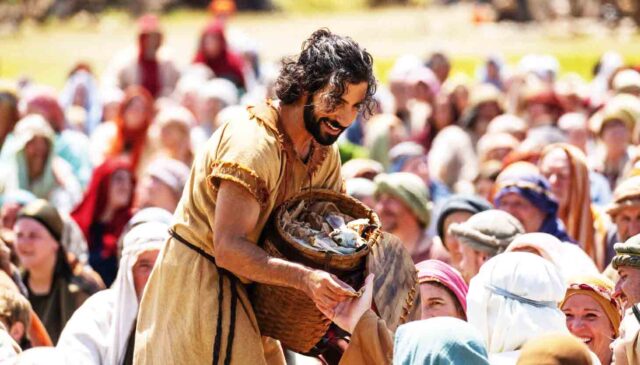By Can Grace Kaiso
Ugandans are notoriously religious. Often foreigners get amazed by the large numbers that throng to worship centres.
The casual inquirer might ask: what are all these religious activities meant to turn into? In other words, what is religion and what is its purpose?
Religion is a belief system which influences peoples’ behaviours, and shape their values and the way they perceive and relate with the universe.
Today, religions come in different forms, but essentially serve the same purpose in human lives.
By definition, religion is “human beings’ relation to that which they regard as holy, sacred, spiritual, or divine” (Webster 1).
It is commonly associated with a person’s relation to God, gods or spirits.
This connection is with supernatural power; the supreme creator and it opens up incredible possibilities as far as the believers are concerned.

The multifaceted roles
Religion plays a significant role in people’s lives and society in general.
Religions promote a moral code of conduct, thereby contributing to orderliness in society.
It offers hope and meaning, especially during the rough patches of life’s journey such as sickness, loss and persecution.
Religions also sustain hope in the face of various existential questions such as death through the promise of a new age or a better existence in the afterlife.
Religion has also been a springboard for positive change in society. For instance, in Uganda, missionaries founded schools, hospitals and technical education.
Religion is also credited for inspiring social movements, including the fight against racism and abolition of slave trade.
Every religion gives direction and standards to their followers to live by and the prescribed ways to act.
This guidance is given with the conviction that it is the only correct one among other religions, hence these doctrines and practices must be embraced and obeyed, not debated.

Signs of a true religion
Given this scenario, it might be prudent to adopt Martin Luther’s position: “Religion: the word does not need a definition, but a demonstration.”
Genuine faith leads to changes in a believer’s life. When these changes are life-enhancing, affirming intimacy with God the Creator and Redeemer of the universe, and maintaining a transforming presence in society, then perhaps we might talk about a religion that is true.
In other words, the authenticity of a religion or a denomination is not judged by the number of believers, the size of a worship centre, the level of giving, or the sophistication of its worship.
James in his letter goes further to illustrate this point:
“Religion that God our Father accepts as pure and faultless is this: to look after orphans and widows in their distress and keep oneself from being polluted by the world” (James 1:27).
True religion is reflected in living a holy life; a life that is not tainted and a charitable heart.
This guidance must be put into context. James is in no way providing an exhaustive list of what religious practice should include, he points to the widows and orphans because at his time, these represented the neediest and most neglected groups.
He was, therefore, speaking in context. He is pointing to the need for those who love and worship God to appreciate that religious life, like any other, is lived in context.
James is also conscious of the proliferation of religions in his day.
These included the worship of idols and false gods. All of them had specific rules and practices.
All of them gave people a false sense of security in exchange for money, loyalty or ritualistic obedience. None of them was pure, undefiled religion.
Most religions mean good. They can be powerful dynamic forces in society.
They can provide a basis for common purposes and values, and they help maintain social solidarity.
They can also play an important role in social control by defining what is right and wrong.
However, often religious systems are corrupted over time by human leadership, leading to a great misunderstanding about who God is and what He wants from His people.

Christ the embodiment
True religion is a way of life, shaped by a certain belief system.
For Christians, this is contained in the Bible and clearly demonstrated in the Gospels.
Jesus Christ is the embodiment of true religion. His life and teachings reflected a deep commitment to doing the will of His Father, even to the point of death.
He also demonstrated power, He lived a life of power and positive influence. His presence could not be overlooked, and neither His capacity to transform situations was underestimated.
With power, He restored the sick to good health (Luke 4:40) and returned dignity to the marginalized, He engaged people of influence on issues pertaining to the welfare of the common people (Matthew 19:14), and stirred hope wherever and with whoever He met.
For Christians, Jesus Christ provides a model for genuine religion; keeping oneself from being polluted by the World, and expressing compassion to the distressed in our midst.

Living corruption-free
One characteristic of our communal life nowadays is a compromised or blunted conscience.
Conscience is a unique eternal faculty enabling us by using reason to feel the difference between right and wrong.
Due to a blunted conscience, we are not moved by God’s deep love for us, we are not aroused by God’s righteousness and holiness, and are not threatened by the prospect of God’s judgment.
At our baptism, we promised to denounce the Devil and all his works.
We need to hear Paul’s call afresh to offer our bodies as a living and holy sacrifice—the kind God will find acceptable. This call is to purity.
Taking God’s holiness seriously will enable us to keep at bay the things that corrupt us and weigh us down.
Appropriating the power available to believers through our union with Christ will enable followers stand up to evil and to attack the strong- holds of sin.
Our hearts are like a garden, we must pay attention to weeds as they germinate to choke the good seeds, by carefully pruning the weeds, which may-be harmful thoughts, emotions, behaviours, guilt and selfishness.
This is how we can deal with the corrupting tendencies within and around us that James is cautioning us about.

Reaching out
Genuine religion or relationship with God produces a desire to help others in their distress. It means caring, a restlessness to want to relieve those in need.
Religious observances, no matter how perfectly observed or appropriately reverent, are empty if there is no concern for the needy.
In James’ time, the plight of children without parents and widows who had lost their husbands was unbearable.
They were crushed by the weight of their problems and distressed by the lack of avenues for support.
Among the sins we commit are those of commission and omission.
The first are sins that go counter to moral law or convention. The second are failures to do something that duty or moral principle demands.
Jesus’ strongest condemnations, were for certain sins of omission, failures in compassion and mercy, and aloofness towards the needs and suffering of others.
For instance, Jesus’ parable about the final judgement. The king says to his subjects gathered in his presence: “Go from my sight to the eternal fire that is ready for the Devil and his angels”.
He then explains to these unfortunate people why they are being punished in that way.
They failed to reach out to those who were hungry, naked, suffered injustice, needed treatment and companionship.
This is Jesus’ judgement on guilty bystanders, on those who stand aloof from the needs and sufferings of others.
We should not care out of fear of impending judgement. The care should stem out of gratitude for what Jesus Himself has done for us.
We were in an estranged relationship with God, only fit for eternal fire. We were in dire need of help.
Jesus, out of love, noticed and realised our predicament. This stirred up concern and care which left Him no option, but to redeem us at a great cost, His life. Genuine love moves us to care.

Be alert to issues
True religion engages with issues in the context of an expression of love.
Compassion literally means suffering with others. Like Jesus and Paul, all faithful Christians will always have issues in their context that need attention.
Jesus faced theological and pastoral tensions among His disciples. Paul struggled with pastoral challenges in the newly founded Churches as well as theological controversies.
They both did not shy away nor pray them away, but faced them in prayer with other management strategies.
Faith communities today, have their share of challenges. Some are internal such as false teachers that have turned the Gospel into merchandise, and followers who are satisfied with showing off religion than genuineness.
Externally, the challenges include people being deprived and oppressed by their circumstances such as sickness, poverty or wealth; blind to their needs and helpless in the face of powerful economic and political sharks.
We are often keen on developing strategies for dealing with our personal health, economic advancement and well-being, but remain unmoved by the suffering around us.
I have been intrigued by the Muslims initiatives in the areas of extending care and compassion.
They have started a foundation that has provided an opportunity for all Muslims according to their capacity, to contribute resources that are shared with those in need through community outreaches across the country.
They support health facilities, reach out to the elderly and provide scholarships to needy children.
We cannot afford to be by- standers, given so much needs surrounding us.
True or rather genuine religion is evidenced by holy living, the power to transform, and with the fruits of care and compassion.
One’s devotion is certainly between them and God, but it must be seen in the way their life ends up as a positive influence among neighbours.






















